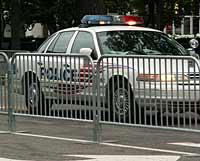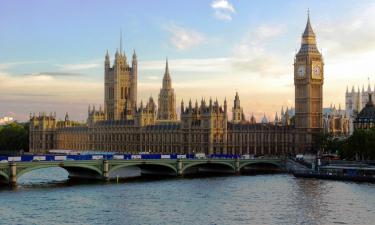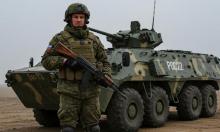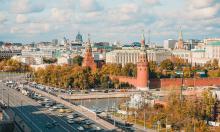Relatives, police say 11 killed nine women and children in United States raid
Eleven people most of them women and children were killed when U.S. forces flattened a house during a raid north of Baghdad early Wednesday, police and relatives said. Insurgent attacks killed at least five more people.

The U.S. military acknowledged the raid and said it captured one insurgent. It took place near Balad, about 80 kilometers (50 miles) north of the capital. But the military said only four people were killed a man, two women and a child.
Political leaders, meanwhile, remained deadlocked on the composition of a new government on the eve of parliament's first session since Dec. 15 elections. At 8 p.m. , a driving ban came into effect in the capital that will last until 4 p.m. Thursday, which has been declared a public holiday.
Authorities in the Shiite holy city of Karbala imposed their own six-day driving ban starting Thursday in a bid to protect pilgrims from a wave of sectarian killing.
The U.S. military is dispatching an Army battalion of about 700 soldiers to Iraq from their base in Kuwait to provide extra security in the coming days because of the pilgrimages connected to the holiday of Ashura, which ends March 20, officers said in Washington. Tens of thousands converge for the religious commemorations, which drew increased attacks in 2004 and 2005.
The decision to add the armored unit, perhaps for as little as 30 days, is in contrast to the Bush administration's hopes to substantially draw down the U.S. military presence in Iraq this year. There are currently about 133,000 troops here.
Police Capt. Laith Mohammed, in nearby Samarra , said American warplanes and armor were used in the strike, which flattened the house in the rural Isahaqi area and killed the 11 people inside.
An AP reporter at the scene said the roof of the house collapsed, three cars were destroyed and two cows killed.
Eleven bodies, wrapped in blankets, were driven in the back of three pickup trucks to the Tikrit General Hospital, about 70 kilometers (45 miles) to the north, relatives said.
Associated Press photographs showed the bodies of two men, five children and four other covered figures arriving at the hospital accompanied by grief-stricken relatives. The victims were covered in dust with bits of rubble tangled in their hair.
Riyadh Majid, who identified himself as the nephew of the killed head of the family _ Faez Khalaf told AP at the hospital that U.S. forces landed in helicopters and raided the home early Wednesday.
Khalaf's brother, Ahmed, said nine of the victims were family members who lived at the house and two were visitors.
"The killed family was not part of the resistance, they were women and children," Ahmed Khalaf said. "The Americans have promised us a better life, but we get only death."
The U.S. military said it was targeting and captured an individual suspected of supporting foreign fighters for the al-Qaida in Iraq terror network.
"Troops were engaged by enemy fire as they approached the building," said Tech. Sgt. Stacy Simon, a military spokeswoman. "Coalition forces returned fire utilizing both air and ground assets."
Bomb blasts killed at least four more people and injured dozens Wednesday in Baghdad and north of the capital.
The worst attacks were in Baqouba, 60 kilometers (35 miles) northeast of Baghdad , where there were at least three explosions.
A suicide bomber on a bicycle missed a police patrol, killing two civilians and injuring six others, police said. The provincial command said the bomber's explosives appeared to have detonated prematurely as he was pedaling toward the patrol.
Later, an explosion in a cell phone shop killed two more people and injured 12, police said.
Police at the scene found apparatus used to detonate explosives, leading them to suspect the shop may have been used to manufacture bombs. At least five other shops were damaged in the blast.
Another bomb targeting a police patrol injured two officers, police said.
The Iraqi army hit back Wednesday, arresting about 20 suspects and confiscating numerous weapons in a dawn raid in a nearby farming area, said Lt. Col. Tarik Muhei.
In Baghdad , a car bomb targeting a police patrol exploded in the western Kindi neighborhood, killing at least one person and injuring 15, said police Lt. Thaer Mahmoud.
Deepening sectarian violence in Iraq has produced at least 87 more victims in recent days _ men shot to death execution-style. Twenty-nine of the bodies, dressed only in underwear, were dug out of a single grave Tuesday in a Shiite neighborhood of east Baghdad .
The timing of the killings linked much of the bloodshed to revenge killings for a bomb and mortar attack in a Baghdad Shiite slum that killed at least 58 and wounded more than 200 at nightfall Sunday.
Revenge was swift in some cases, and by early Monday police began uncovering the bodies, although the discoveries were not immediately reported. The gruesome finds continued through the day Tuesday, police reported, marking the second wave of sectarian retribution killings since bombers destroyed an important Shiite shrine last month.
The violence has complicated already tangled negotiations for a broad-based government, which the United States hopes can stabilize the country so its forces can start going home.
Leaders of the main ethnic and religious blocs met Thursday with U.S. Ambassador Zalmay Khalilzad, who is pressing them to bring the drawn-out negotiations to a close. The session was hosted by President Jalal Talabani, a Kurd.
The first meeting of parliament starts the clock on a 60-day period in which lawmakers must elect a president and approve a new prime minister and Cabinet.
Iraqi leaders, however, remain divided over interim Prime Minister Ibrahim al-Jaafari's candidacy for another term, said Kurdish legislator Mahmoud Othman, who attended the Wednesday's meeting.
Al-Jaafari was nominated by the Shiite United Iraqi Alliance, which has the largest number of parliament seats and gets first crack at forming a government. But a coalition of Kurdish, Sunni and some secular Shiite politicians argue al-Jaafari is too divisive a figure and did too little to contain the recent waves of sectarian violence which killed hundreds.
"We feel that there is pressure on the political leaders by the Iraqi people and also international pressure. So the political leaders are taking the matter seriously in order to speed up the process," of forming a government, said Othman. "We expect results and there is some progress", reports the AP.
D.M.
Subscribe to Pravda.Ru Telegram channel, Facebook, RSS!




